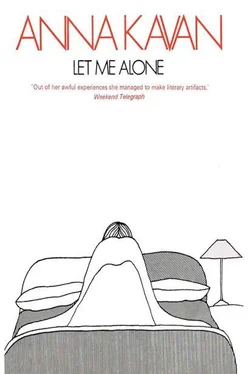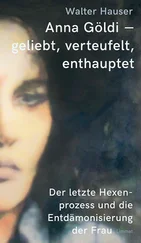Except for young Whitaker. Whitaker was a young man working for the railway, a very junior official. He was only about twenty-five, and looked younger, but he was married to a florid, matronly sort of wife, and had already a pair of shrill-voiced children.
Anna was not very interested in him. He was an infantile creature with a round, cherubic face and a bewildered expression. The load of domesticity with which he had burdened himself seemed rather too heavy for him, too much of a good thing. Hence the bewilderment. His wife and his two babies seemed to fill him with wonder, as though he wondered how they came to be there. However, he bore up bravely under the burden of family life.
The shortest way to the railway offices lay past Matthew’s bungalow, and Whitaker passed every day, hurrying along, down a narrow goat-track at the edge of the marsh. Sometimes Anna saw him from the window, sometimes he caught a glimpse of her, and, when this happened, he made her a quick salute and hurried on faster than ever. He was rather shy; particularly of Anna, to whom a curious reputation was beginning to attach itself.
One day he killed a snake with his stick. There were a great many snakes hidden under the leaves and the rubbery, turgid stems of the marsh plants which remained green and lustrous in spite of the heat. Anna saw the incident and came out, out into the burning ferocity of the sunshine. She was fascinated by the sight of the dead snake, the weird, magnificent skin, dark purple and yellow blotched with brown, like some sinister crushed orchid lying on the burnt ground.
She talked to Whitaker. She suggested that he should walk through the compound in future, instead of along the marshy track on the other side of the fence. It was agreed. His chubby, khaki-clad figure now passed a little closer to the house. When he saw Anna he saluted her with the same slightly embarrassed politeness as before. That was all. Then suddenly one day, he came into the house on some pretext. Anna was astonished. What could have possessed him? Looking like an overgrown infant in his khaki shorts, he sat and made conversation in her gloomy, dim-lit drawing-room. She was amused by his plump, bare, sunburnt knees. She wanted to laugh at him. He was so absurd with his shyness and his awkwardness and his bewildered-cherub appearance. But she did not send him away.
He came fairly often after that. Anna couldn’t imagine why. But there seemed to be some attraction. He sat, rather gauche and infantile, and dropped cigarette ash on to her coloured rugs, and broke his long silences with laborious banalities. She laughed at him secretly and was rather bored, rather amused. But she did not rebuff him. To tell the truth, she was glad of even this shred of human companionship.
Matthew came back one afternoon earlier than usual. Anna was in the drawing-room with Whitaker. Tea-things were on the table. She heard Matthew come on to the verandah. The sound of his footsteps and of his cross, domineering voice speaking to the servants, filled her with apprehension. She was apprehensive without knowing why. She waited apprehensively. He came in.
‘Will you have some tea?’ she asked him.
He did not answer, but stared at Whitaker. The young fellow had risen in confusion. Embarrassment overtook him; he was stricken dumb with awkwardness, like a child. And Matthew stared him rudely, insultingly.
Anna talked at random. She was furious with Matthew, who stood with that neat, insolent face, staring at the young man. Presently Matthew sat down. His actions jarred on her, everything he did. How hateful was the way he stared, insultingly, so arrogant! She hated him. His behaviour disgusted her.
Matthew sat there, his face wooden and stupid, fixed in the persistent rudeness. He drank his tea, and stared over the top of the cup, rudely. His sun-helmet had left a red line across his forehead, there was a dampness of sweat round his nose and mouth. He would not speak to Whitaker, even when the young man addressed him directly. He simply sat there, ensconced in his ugly, stupid, malicious rudeness, and stared at him, to stare him out.
Anna felt sorry for Whitaker with his bewildered, embarrassed, innocent face, which had never lost its babyish roundness. He stammered and grew pink, then very white, and finally went away.
Matthew went on with his tea. Anna could not bring herself to speak to him. Her disgust was too deep. It was his stupid complacency that she could not bear, so ugly and insensitive. There was a long silence. Then she took up a book and began to read. This irritated him, and he looked at her with his foolish, blue, bright eyes, blank and meaningless as a pair of marbles in his face.
‘What was that young cub doing here?’ came his bullying voice.
She winced in disgust and did not answer.
‘Why were you having tea alone with him?’ came the voice again, in the same hectoring tone.
And still there was silence, except for the turning of a page.
He pushed back his chair with a loud noise, and stood up. He stood over her with clenched fists and the ugly glitter in his eyes, as of an irritable madness. She thought he would strike her. She did not waver. A sort of fiend of defiance came into her. She was purely opposed to him, utterly defiant. His standing over her, threatening her, the stupidity of him, the way his hands quivered, disgusted her beyond measure. She looked at him coldly, destructively, with disgust and loathing. And the frenzy rose in him, his eyes glittered blue and dangerous, he was murderous in his blank rage. And she despised him. He seemed a base, contemptible object, threatening her, bullying her. She only wanted to get away from him.
‘What is it to do with you?’ she said. ‘I shall have tea with whom I choose.’
The angry blood came up in him like a red sign. He seized her shoulders and thrust her back in the chair, as though he would force her through the back of the chair. His face was blank and blind.
‘Oh, no, you won’t!’ he shouted in his frenzy, right into her face. ‘I won’t have it. Not in my house. I forbid it!’
She looked straight at him, with the calm, contemptuous face and the indifferent eyes that cowed him, made him go limp and deflated. He released her and moved away. She saw his neat, stiff figure moving. He went outside. She sat on in the room alone.
She picked up the book, which had fallen face downwards on the floor. Her shoulders hurt where his hands had gripped them. She sat still and smoothed out the crumpled pages. She was not frightened of Matthew. But he repelled her. She was repelled by his hard, hairless body, and the head poking forward rather from the shoulders, in a sly, mean, stupid way. He was like a repulsive burden upon her. If only the time would come when she could shake him off.
Young Whitaker did not come to the house again. Matthew had said something to him; had probably been abusive. There had been some sort of a scene. Anna did not care to find out what had passed. There was a great disgust in her heart, a cold, imperturbable indifference in her manner. She continued negative and vague on the surface. She seemed to be waiting. In the fullness of time, the opposition that was within her would culminate in her escape. She walked sometimes on the road which led to the station. She had money of her own. Any day she could go to the station, and at the station she could take a train to Rangoon, and from Rangoon a boat would take her back to Europe. The way was open. But the time had not yet come.
The slow, hot days went by. Matthew was away a great deal of the time. In the club he was quarrelsome and touchy. His original slightly obsequious leaning towards friendliness had vanished. Both he and Anna were thoroughly unpopular in Naunggyi.
For days on end Anna did not speak to a soul except her servants. And it grew hotter and hotter. Every day a little hotter than the last, with the hot sun riding up, blinding bright, into the burning sky, and the cauldron-like earth simmering below. The rains were coming. There was a strange electric stirring and undulating in the fiery atmosphere. The distant hills stood out sharply, with the trees distinguishable, a tiny, greenish patterning, like shagreen, very clear and regular, on the far-off slopes. Sudden great gusts of wind would come wheeling hotly out of the blazing hush, pillars of grey dust would travel, ghost-like, in silent, stealthy haste across the plain. And clouds began to appear, piling up nightly in heavy portent, like some grandiose doom. In the morning they would all have melted into the vast, scorching, beating light. But evening saw them rolling up once more, a solid, dark pack above the horizon, inexorable and grim. They had to come.
Читать дальше












